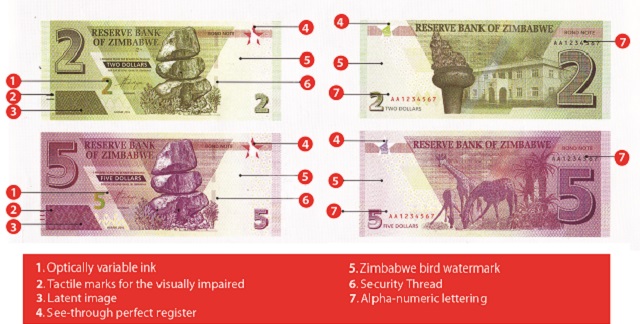Negative talk should just be dismissed

Perspective, Stephen Mpofu
As you (yes, you) critique the negative concept above, consider what follows.
Some members of a large family draw daggers at each other for no reason other than that their views on different issues concerning the family do not coincide. At the same time the critics hurl spears that glint in the sun at the governance of their family, blinding other members with rage in the process.
As can be expected, such a dysfunctional environment breeds bitterness, antagonisms and divisions that paralyse any initiative meant for the social and economic development of the family as a whole.
Negative talk during and after the recent presidential elections in the United States of America, today’s only super power following the collapse of the Soviet Union, has left that otherwise great nation of opportunities divided across ethnic and political lines which can only result in weakening the country when international political dynamics come to the fore.
Mr Donald Trump’s negative talk about undocumented immigrants, in a nation of immigrants and his desire to curtail in international trade appear to posit him in the eyes of the international community as an isolationist — a move that might weaken an America deprived of political and economic allies at a time that she might need them the most.
Just days ago civil rights groups reported as many as 800 cases of bigotry and racism in the wake of Mr Trump’s electoral victory over democratic candidate Hillary Clinton. Apparently concerned about the deterioration in race relations, the rights groups asked the president elect to denounce the worsening trend in race relations in that country.
In fact, the president elect’s latest unsubstantiated claim that millions of people had cast their votes illegally, giving his rival a total of 2.2 million votes above his own in a national count, has left political pundits wondering just what America will be like in the years that Mr Trump will reign from the White House.
[Of course, electoral college votes which count the most in American presidential elections, gave Mr Trump the edge over Mrs Clinton in the race to the White House. But cheating is suspected to have taken place in some electoral college votes and recounts are set to take place to discover whether any fraudulent voting or counting took place.]
The tenor of the above discourse is that if negative talk can cast a dark poll over a country touting itself as the most powerful on the globe, how much more damage is negative talk likely to cause to smaller nations such as Zimbabwe where some power hungry politicians for instance, can be defined by their lack of positive talk?
An issue that immediately comes to this pen’s mind concerns the ruling Zanu PF’s centre of power principle that requires the president to appoint his deputies.
Instead of advancing plausible arguments for a change of that principle for acceptance by all concerned, some Machiavellian characters, obviously eyeing the second most powerful position in the land themselves, have made utterances with a negative impression suggesting that someone at the top wants to cling to the principle regardless. Negative talk no doubt slams rather than opens the door for a speedy and amicable resolution of this critical issue on whether the country’s two vice-presidents should be elected by the people rather than be appointed by the president as is the case now.
Then also comes the question of bond notes that negative talk among some political parties and labour organisations has painted a picture of bond notes as dud currency and giving the impression that the Government through the Reserve Bank of Zimbabwe that introduced the new money was failing to come to grips with the shortage of money in the country.
The negative talk against bond notes has even led to fatal court challenges against the currency as well as to persistent desires by labour organisations to demonstrate against the bond notes that have been added to the basket of foreign currency for use after the Zimbabwe dollar was phased out, to ease money shortages and stimulate the economy.
However banks this week have reported a positive uptake of the bond notes introduced on Monday, according to the Reserve Bank. Other reports have suggested that industry also accepted the new currency on the market.
As such negative talk can justifiably be dismissed as something that marginalises the totality of the aspirations and expectations of Zimbabweans for the restoration of a buoyant economy for the good of all.
Then comes negative perceptions that also run counter to popular expectations, especially when the role of Zimbabwean women, who out-number men, in politics and political positions in the party and in its government are considered.
It is no exaggeration for this pen to suggest that die-hard male chauvinists in Zimbabwean society believe that only they should hold top positions in Government and in the party and that women, regardless of their numerical superiority, education, political or other acumen should continue to wait on them in the corridors of power just as they do in the home.
As a result women appear to be growing impatient at being kept in the shade instead of in the limelight of power and now believe that proportional representation would be the answer to parity or near parity with men in running the affairs of this country.
Contextually, therefore negative talk as well as negative perceptions by men on critical gender issues will remain detrimental to political, social and economic development as long as brick walls divide the roles of men and women in Zimbabwe.
To agree to the argument of men and women working together as a team in advancing the fortunes of a country, consider (yes, you do) that people are to a country what fish and other aquatic creatures are to a body of water.
If, as in the case of negative talk, you empty a dangerous chemical into the water aquatic life will dive for safety deeper in the water.
Similarly, persistent negative talk is likely to make people retreat to their various protective enclaves, leaving the country divided and vulnerable to all forms of negative forces.
Is this what Zimbabweans really want to see happen to our beloved motherland?
This pen humbly and strongly believes that negative talk and negative perceptions are values of a culture that our country can and should best do without.
Now here is someone with the answer to the way forward for Zimbabwe. It is Jesus, the Light who will illuminate the path for our nation to take and toward a brave new future, working hard as if in service to the Lord Himself, as slothfulness is a deadly sin.
Of course, squint-sighted opposition political players who with both hands grab at dirty money from capitalists and sworn enemies of Zimbabwe as agents of regime change woefully worship a false Jesus.











Comments